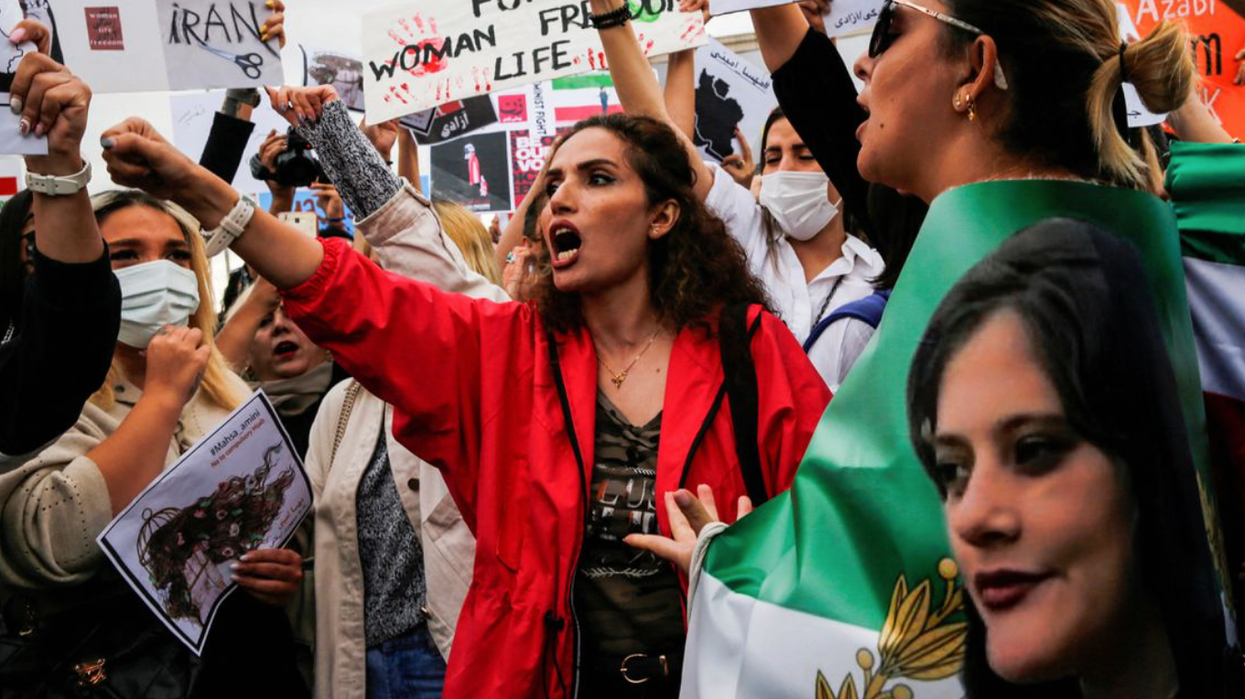In Iran, Women Are Sparking A Revolution Against Autocratic Rule

Women in Iran, defying headscarf law, demonstrate against the "morality police"
There were three months of protests. More than 400 died, according to the Washington Post. The New York Times figure is 300 dead, 50 of whom were under the age of 18. Suffice to say, a lot of people in Iran lost their lives demonstrating for a women’s rights, specifically to wear what they want, to reveal their hair if they want – basically, against women being the sole objects of the country’s morality police, the paramilitary street enforcers of the country’s draconian Islamic dress codes for women, and only women.
The protests began when a young woman, 22-year-old Mahsa Amini, was beaten to death while in the custody of the morality police. She was arrested for improperly wearing her hijab, the headscarf Islamic law demands women wear to cover their hair.
Yesterday, an announcement was made by Iran Attorney General Mohammad Jafar Montazeri that the morality police were to be abolished. The announcement came in answer to a question at a press conference after Montazeri gave what the Washington Post called “a conspiracy-theory-laden speech blaming the anti-government unrest on Western countries.” Montazeri followed his statement about the morality police with a threat that “the judiciary will continue to watch over behavioral actions in the society.”
So, as is common in authoritarian societies like Iran, mixed signals were sent by the clearly intimidated men in charge of the country. Months of street demonstrations and the killing of Iranian protesters set off a new round of sanctions against the country. The United States, the United Kingdom, and the European Union have announced sanctions against the morality police.
On the CBS program Face the Nation, Secretary of State Anthony Blinken expressed caution: “If the regime has now responded in some fashion to those protests, that could be a positive thing, but we have to see how it actually plays out in practice and what the Iranian people think.”
Over 15,000 protesters were arrested during the recent demonstrations, and some are now beginning to face trials before Iran’s ultra-conservative judiciary. The Washington Post reports that “dozens of protesters, some minors, face the death penalty.”
Young people in Iran appear to be taking a cautionary approach to the announcement of the disbanding of the hated morality police. One protester posted this on Twitter: “They really think it makes a difference if they shut down the morality police. Haven’t they realized our target is the whole system?”
But the Iranian regime seemed unsettled enough to at least begin addressing the issue of the strict Islamic dress codes, which were imposed following Iran’s 1979 revolution by the country’s “supreme leader,” Ayatollah Ali Khamenei. The dress codes apply overwhelmingly to women, who are always the first to feel the fist of repressive governments. In the case of Iran, women are showing themselves to be the first to stand up to the autocratic rule of men.
Lucian K. Truscott IV, a graduate of West Point, has had a 50-year career as a journalist, novelist, and screenwriter. He has covered Watergate, the Stonewall riots, and wars in Lebanon, Iraq, and Afghanistan. He is also the author of five bestselling novels. You can subscribe to his daily columns at luciantruscott.substack.com and follow him on Twitter @LucianKTruscott and on Facebook at Lucian K. Truscott IV.
Please consider subscribing to Lucian Truscott Newsletter, from which this column is reprinted with permission.








